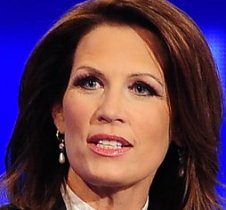Newt Gingrich has the best chance of winning the White House for the
Republican Party in November because his economic plan to create jobs will work — and Mitt Romney's won't, former candidate Herman Cain insists."The biggest domestic challenge we have is stimulating this economy. I don't happen to think Gov. Romney's 59-point plan is going to do it," Cain explained during an exclusive interview with Newsmax.TV, just minutes after formally endorsing the former House speaker.
Story continues below the video.
Cain said he made his final decision to back Gingrich on Saturday morning, the same day he made his announcement. He said he has no doubt that Gingrich, rather than his most serious rival, former Massachusetts Gov. Romney, is the man who can defeat President Barack Obama in November and win back the White House for the GOP.“The distinction between Newt Gingrich’s ideas and President Obama’s are the widest,” he said minutes after making his endorsement in West Palm Beach, Fla. “When you look at Gov. Romney, too many of his phrases and too many of the things he talks about are more moderate in the middle.
“That’s too close. The American people need to see a wide, clear distinction between the two.”
Cain announced his decision during a surprise appearance at the Palm Beach County GOP Lincoln Day Dinner, just three days before the vital Florida primary. He said the two Georgians had had extensive conversations at least once a week recently.
“I presented to him a couple of weeks ago the idea that I aligned with all of his ideas, but I didn’t think that his ideas for economic growth and jobs were strong enough,” said Cain, who dropped out of the presidential race in December.
“I said you need to be bolder, and I said I offer you 9-9-9, so he said he would think about it.
“We had a conversation as late as this morning when he said he could embrace the idea. That isn’t to say that he is going to be the cheerleader for it — that’s my job — but he did say he would embrace the idea.”
Cain made the 9-9-9 plan the central plank of his own run for the presidency before he dropped out in December. Under it, the current tax codes would be abolished and replaced with a flat rate 9 percent rate for personal income tax, corporate tax and a new national sales tax.
Along with accepting the endorsement, Gingrich appointed Cain to co-chair his tax reform and economic growth advisory committee. “That means I will have an opportunity to convince others of 9-9-9, and I took that as a very positive sign,” Cain said.
Cain said he accepted that the Republican race now has just two realistic candidates, Gingrich and Romney.
Romney’s 59-point economic plan "is not connecting with the American people, they don’t even know what that’s about. The American people want specific ideas that are going to address the problem,” he said.
Cain said he and Gingrich agree on all other major issues, specifically noting there is no difference in their approach to energy independence, regulatory reform and the question of sound money.
“I wanted him to be stronger on replacing the tax code and we had a conversation and that put us over the fence."
But he also said he likes the “boldness” of Gingrich’s thinking. “He talks about energy independence and Made in America. He’s bold in saying he will sign authorization for the Keystone pipeline, that’s what you call bold, not dancing around being generic and political.”
The two men first met in the early 1990s when Gingrich was speaker and Cain was leading the business opposition to then-First Lady Hillary Clinton’s plans to reform healthcare.
“I remember the first time I ever met Speaker Gingrich, we sat down in his office for a 10-minute conversation,” he said. “He canceled two meetings to spend some more time with me because he understood where I was coming from and he wanted to hear the businessman perspective.
“The one thing that impressed me the most is that when I had that initial conversation with him, it wasn’t ‘Let me do this because I think I should.’ He genuinely listened to my ideas and what I thought the business community wanted to do.”
Gingrich’s experience also added to Cain’s conviction that he is the man for the job. “He [was] in Congress for a long time, but the good news is he was out of Congress for a long time, that gave him an opportunity for him to clear his head, and he did.
“He will go back as president with a fresher, bold approach about what he needs to do in order to change Washington, D.C. — rather than somebody who has been stuck in Washington, D.C. or stuck in politics for most of their career.”
Interesting.



![[carlyle0111]](http://si.wsj.net/public/resources/images/OB-RI370_carlyl_D_20120111093512.jpg) Bloomberg News
Bloomberg News 
 Bachmann, who formally announces that she will end her campaign for president on Wednesday in Des Moines, has a lot to distract her from a return to the rank-and-file of Congress.
Bachmann, who formally announces that she will end her campaign for president on Wednesday in Des Moines, has a lot to distract her from a return to the rank-and-file of Congress.

